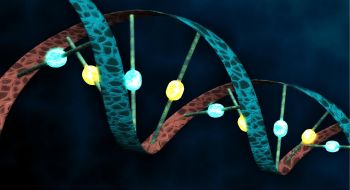Tiny mitochondria play mighty role in fertility and ageing
By: James Hakner
Last updated: Wednesday, 21 October 2015

Mutations within the DNA sequence of mitochondria – the tiny structures that power every cell in our body – have significant effects on fertility and life expectancy, a new international study has shown.
Scientists from the University of Sussex in the UK and Monash University in Australia also found remarkably different outcomes for males and females.
A single mutation within the mitochondrial DNA sequence of the fruit fly causes sterility and longevity in males, while females remain fertile but live shorter lives, according to the research published in the journal Current Biology.
The fruit fly provides a good model for studying humans due to their genetic similarities.
Lead researcher Florencia Camus, from Monash, said that. “This mutation made males sterile but remarkably the ill effects were observed only in males; females who harbour this mutation maintain their fertility. This very same mutation that causes male infertility results in them living longer than flies that don’t have this mutation. However, while remaining fertile, females that carry this mutation have shorter lives,” said Ms Camus.
The research adds to a growing body of evidence that mitochondria play a far bigger role than just behaving as the cell’s ‘biological battery’, and reinforces that the smallest of changes can have far-reaching effects on a range of human traits.
Co-author Dr Ted Morrow, an evolutionary biologist at the University of Sussex, said that the results show that sex and gender are important factors in gene expression.
He said: “It’s a much more complicated picture than just saying some genes are bad for human health while others aren’t. We need to look at the context – in this case gender – to fully appreciate the effects.”
Dr Damien Dowling from Monash said: “The remarkable thing about these findings is that these mutations affect male fruit flies very differently from females. Certain mutations appear to be beneficial to one sex, but harmful to the other. This provides novel insights and ways of thinking into how the genes of the mitochondria might also shape aspects of human health.”
Dr Morrow added: “Although there is plenty of evidence for the existence of natural selection acting in a sex antagonistic way, this study is likely to be one of the first to identify a particular gene to have sexually antagonistic effects.”
